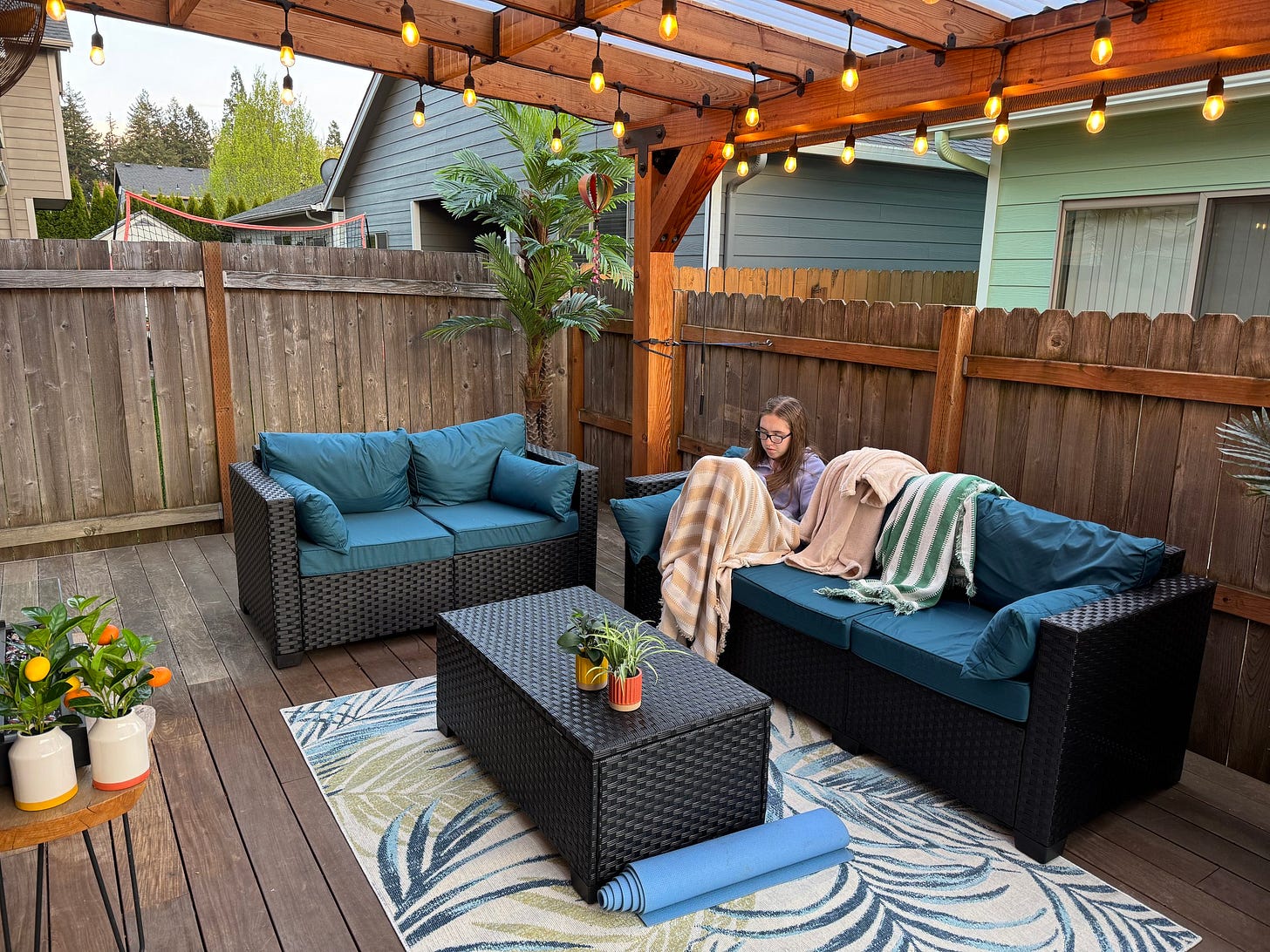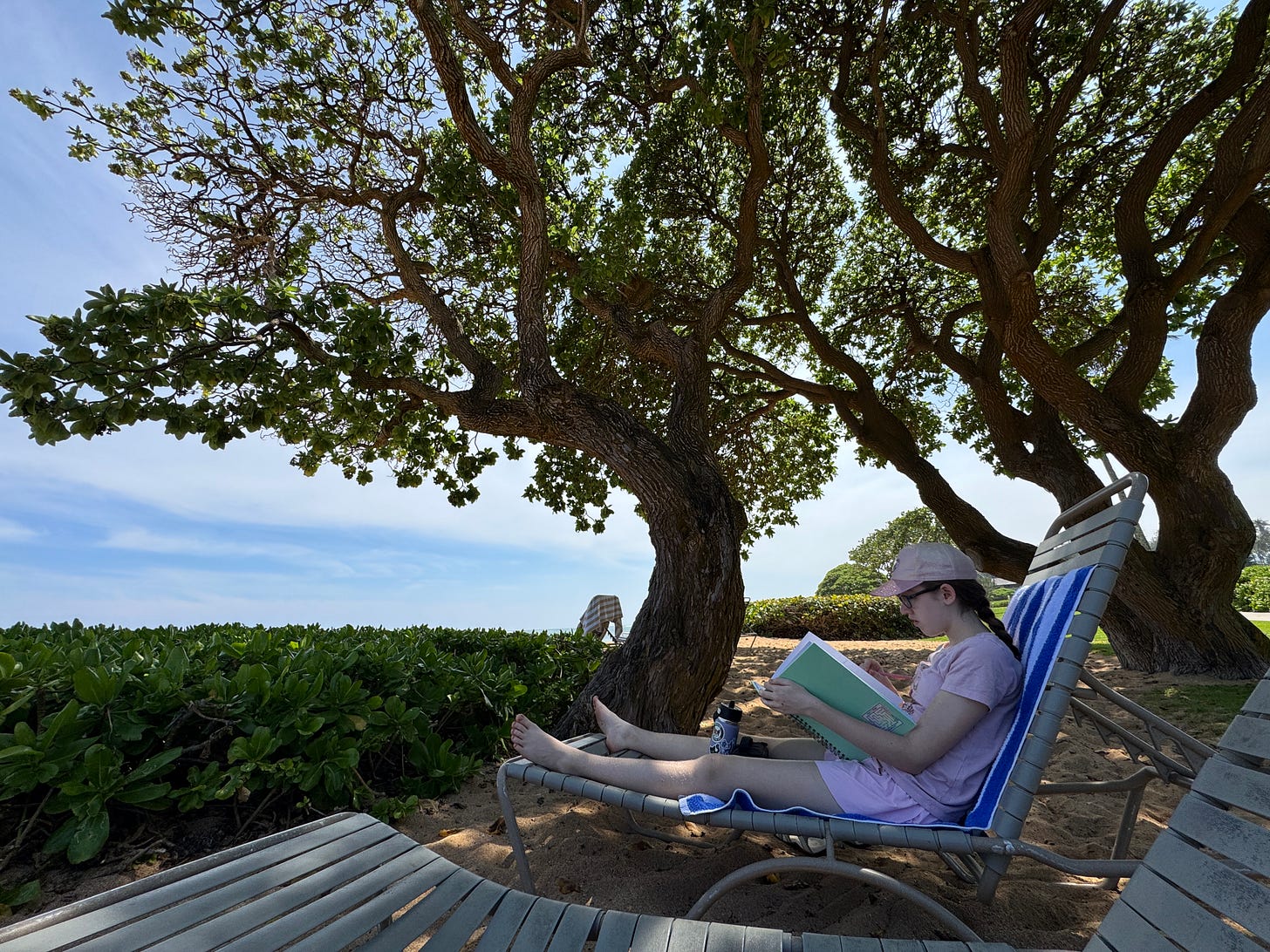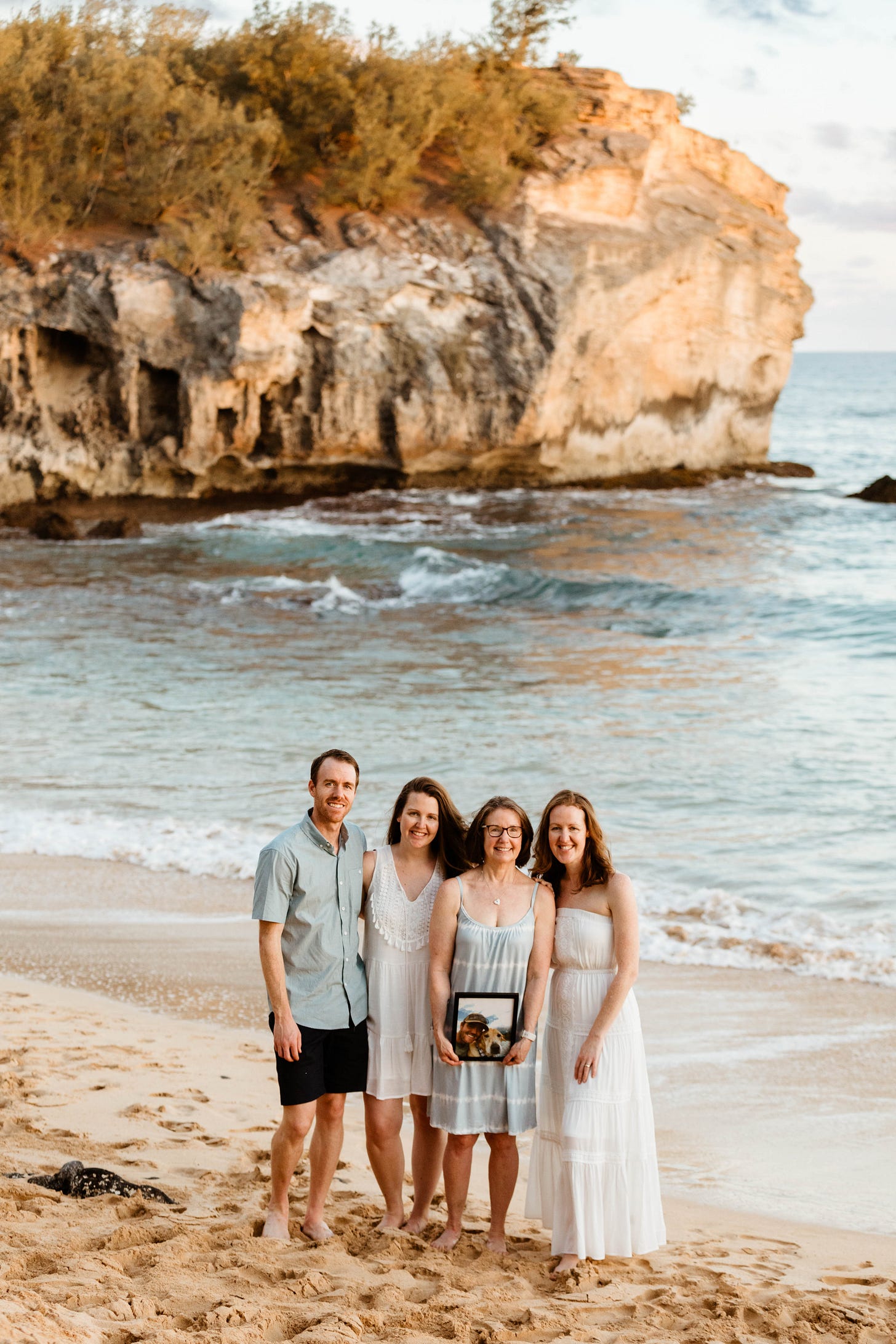It's wild being my daughter's ritual
A glimpse into Obsessive Compulsive Disorder when it runs in the family
This story is shared with permission.
She looks at me with pleading in her eyes.
I look back into these beautiful eyes I’ve loved for thirteen years. “No, I can’t tell you that.”
She lowers her eyes and defeatedly walks back to her room.
One might think this is a typical teenage daughter and mother interaction, but it’s got layers most don’t see.
We both struggle with Obsessive Compulsive Disorder (OCD). We don’t handle uncertainty well, to say the least. There are specific areas of life where our brains figured out something was dangerous and they jump to action to convince us these situations will always be dangerous. One way our brains love to mitigate this danger is to perform compulsions and rituals that provide relief to all that danger.
I have a lot of compassion for my brain. She’s trying so hard. There’s steam floating heavenward fairly often. My daily invitation is to help her find safety in a world that’s not nearly as scary as she believes.
It’s wild to be one my daughter’s rituals.
This plunges me into jarring moments of tension. Is this a moment where my daughter needs genuine parental support?
Or — is this OCD lying to her and looking for certainty before she can move forward.
I’m her mom and her ritual. And as long as I allow her to use me as a ritual, the terrible brain loops continue.
It’s agonizing.
But we’re slowly learning to dance with this tension — together.
I ask her, “Is this OCD or a genuine need for support?” She gets quiet for a moment. “I think it’s OCD and I’m really overstimulated and could use the extra support.”
I respond, “That makes sense. You’re doing a hard thing. We know OCD is sneaky and lies to you about what’s actually happening. Let’s break down the situation and find a compromise for support.”
I routinely say that treating OCD is the hardest thing I’ve ever done. In myself and with my daughter.
Because I know the curves and edges of the road taken if I constantly reassure her whenever OCD hisses its’ concern. I know how big the monster can grow. The way it wraps itself around the people and places I love the most and turns them into crippling fear.
In the kitchen in Hawaii
Our big trip to Kauai last month had an exquisite way of triggering every OCD pattern in my nervous system. Looking back, of course it did. I stepped far out of my comfort zone of familiarity and right into an unpredictable island in the middle of a vast ocean. And yet — it was my favorite vacation of my life.
I’m glad all of it can be true at the same time.
I’m still unwinding some OCD patterns around contamination and nuts. My daughter has a life-threatening allergy and many allergy parents struggle with OCD as a result. It’s a tricky one because we do have an actual responsibility to ensure our child’s well-being but it’s easy to take it many steps too far.
Did I wash my hands before making her food? Did I touch peanuts today? Did she touch that surface at school after a kid sat there eating a peanut butter sandwich? Did she wash her hands? What if I forgot that I touched peanuts? What if the packaging is wrong on that new food she’s trying?
It’s exhausting.
One can see how people develop a wide array of behaviors to avoid all those internal questions.
But the problem is — the initial question itself is already skewed. There are safe ways to feed children with allergies. But my brain doesn’t believe that based on how I continue to act each time I choose to do a compulsion or ritual. Each time I give into the rumination or checking or limiting food, I’m communicating to my brain that this is dangerous. It’s a roller coaster.
Back to Hawaii.
Each time we travel with others, we’re sharing a kitchen with their food preferences. I hate being that annoying allergy parent who limits certain foods for everyone else. But yeah, it’s exhausting to feel hyper vigilant at every meal around contamination.
My mom was an elementary school nurse. She knows how to deal with peanut allergies. Which is why she also knows it’s okay to put walnuts in a salad in the same kitchen as my child. But my nervous system doesn’t understand this logic. My OCD brain wants certainty at all costs.
Which brings me to a curious moment in the kitchen of our condo rental. My brother stands in front of me holding a salad and a bag of walnuts, looking at me and then at our mom. Mom is looking at me and back at Ryan.
He says, “Jenny, what do you want to do?”
I swear I can feel the steam leaving my ears.
Logic calmly says, “Jenny, this is genuinely okay.”
Fear screams, “DANGER!”
Ugh.
I hear myself say out loud, “Mom isn’t arguing with me about walnuts. She’s arguing with my mental illness. You can do the walnuts.”
I spent the entire meal on edge, hyper vigilant that one piece of walnut dust would somehow jump out of the bowl and onto her food and into her body. Forget the fact that she’s not even allergic to walnuts. Eye roll.
Everyone wiped down counters and dishes and my delightful 13-year-old skipped away to play with her cousin, oblivious to the entire exchange.
I whisper to my therapist the other day, “I hate that I made her this way. My struggle with anxiety created this mess in my daughter too.”
We talk generational trauma and how this stuff lives in family lines and shows up in all kinds of ways. We talk about the invitation to take responsibility for our own harmful patterns so we don’t keep passing them on. We talk about shame and how my daughter gets to figure this out for herself too.
Here’s to all the ways we take responsibility for the current chapter of our story and commit to the work within us.
The invitation
How does one heal OCD?
The goal is to notice the patterns we have around anxiety and reduce rituals that we genuinely believe keep the anxiety at bay.
Once we reduce rituals, then the even harder part is to do exposures on purpose to allow our body to move through the anxiety spiral and learn a new pattern.
Any way we can mess with OCD’s pattern is a win.
Reduce rituals, postpone rituals, change order, change location, change tone or volume, change how I go about the ritual, undo the ritual.
And you know what’s wild when I started pulling the thread on OCD? I engage rituals (like rumination and checking) in way more areas of my life than I previously thought.
Then, like wack a mole, I undo and heal a pattern in one area and it shape shifts into another area.
Marriage. My work. My relationship with food. Parenting. Friendships. Daily living.
Why write about this?
It’s healing to express what’s hidden under the surface. Bringing challenging things into the light of awareness is how we normalize this for others. It reduces the shame around OCD. Because, OH the shame.
This essay bubbled up as I thought about those of us who love someone with OCD and high anxiety. I wanted to give you a glimpse of what it’s like to be the one trying to support someone while living inside it myself.
Because compassion is genuinely a core practice of OCD treatment.
Want to help your loved one?
Learn about OCD. It’s more than worrying a lot.
Practice patience. Yeah, it’s likely irrational, but it’s very real and urgent to them.
Don’t feed their rituals. Agree on healthy coping strategies and support those.
Encourage professional help. ERP (exposure and response prevention) is a great treatment.
Validate their emotions. It’s really hard. No fixing or dismissing it.
Set healthy boundaries. Yes, they’re struggling, but focus on your well-being too.
Celebrate the small wins. Progress can feel really slow.
Stress makes OCD symptoms worse. Help create calm predictable routines.
Offer practical support. You might say, "Would you like me to sit with you while you practice not doing your compulsion?" or "I'm proud of you for trying something hard."
Books
If you know someone who struggles with anxiety, or supports someone who does, consider sharing this with them. We could all use some love.











"It’s healing to express what’s hidden under the surface." "We could all use some love." Thank you for so willingly unveiling your witness to these two truths. Well done and engaging.